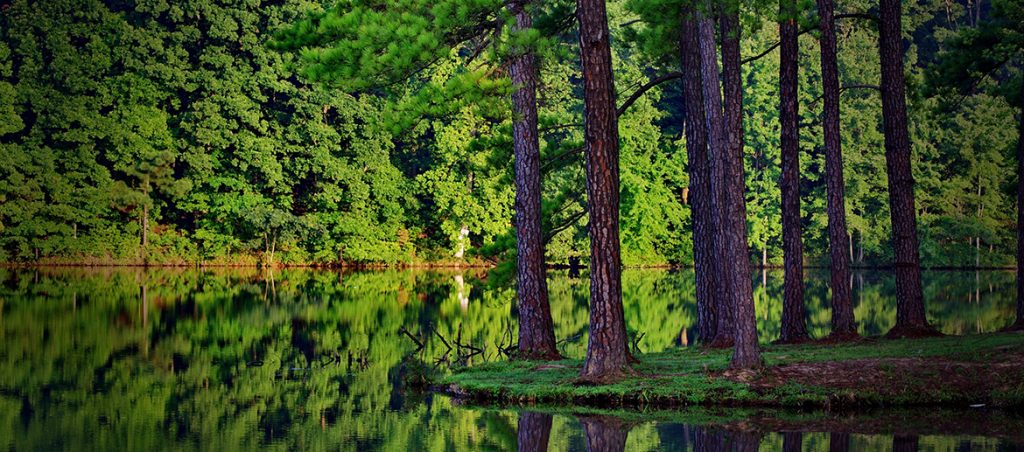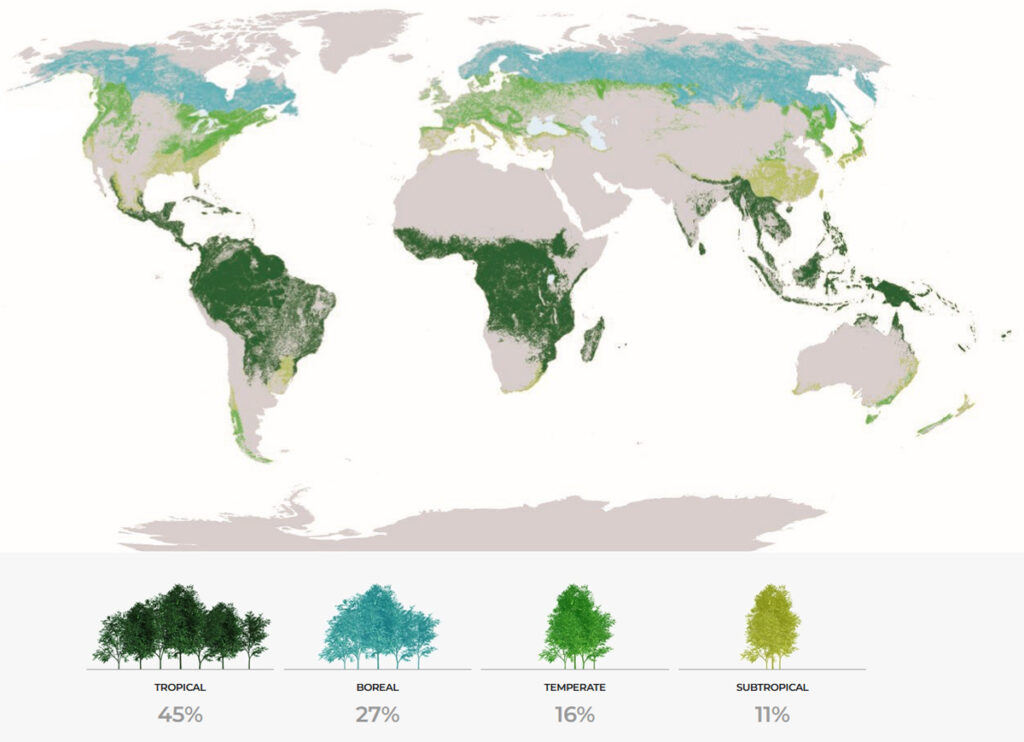“Millions of trees form a vast, interconnected system, much like the neural networks of a brain, creating a synergy that is far greater than the sum of its parts. Forests function as the planet’s intricate “mind,” sustaining and connecting life through networks that have nurtured Earth’s ecosystems for millions of years. These natural systems embody a form of collective intelligence, subtly shaping and preserving the environment over millennia.
When we destroy forests, we disrupt more than ecological balance—we compromise a vital mechanism that supports life itself. In doing so, we act like a virus attacking the planet’s “consciousness,” the very system that has enabled life to thrive since long before our existence. Ironically, the intelligence that defines humanity has also fostered destructive tendencies, threatening the Earth’s capacity to sustain life.
Every organism possesses an innate response to defend itself against harm, and Earth is no exception. If humanity continues to harm the planet, it could provoke a reaction—an unpredictable defense to neutralize the threat. This is not a work of fiction; the planet has ways of restoring balance, with or without us. The question is whether we will recognize the peril in time, or if our own actions will lead to our downfall. Tragically, our so-called intelligence seems ill-equipped to prevent the very future we fear.” Dario Sonetti

Forests are the most widespread biome on Earth, covering 3.9 billion hectares (about 30% of the global land area) and play a fundamental role for humanity, providing a wide and invaluable variety of services:
- they constitute an immense and immeasurable repository of biological diversity;
- they host most of the living animal and plant species;
- they are home to thousands of higher plants, which generate physical structures and create ecological niches for other plants and animals;
- allow mineral nutrients to be re-cycled;
- they provide water, oxygen and everything else needed by other living organisms;
- exchange and accumulate large masses of carbon, helping to mitigate climate change;
- they control soil erosion and water regulation; they intervene in the genesis of the soil itself, in the nutrient cycle, in waste treatment;
- they exert biological control on the development of parasites and pathogens;
- they provide wood for construction and fuel, fibre, food, medicinal substances;
- They represent a place for recreation, leisure and spirituality, as well as a basic resource for indigenous populations, custodians of rare and precious cultures.
This unparalleled portion of nature is increasingly at risk today.
Since the beginning of the Holocene, about 10,000 years ago, 80% of the forests that covered the planet have been destroyed and what remains is, to varying degrees, fragmented and degraded. Currently, in fact, most of the remaining primary forests are concentrated in some regions, notably in the Amazon, Canada, Southeast Asia, Central Africa, and the Russian Federation.
In the last decade – as can be seen from a recent FAO report on the state of the world’s forests – deforestation has taken on a disconcerting and unprecedented pace: 161 million hectares of natural and semi-natural forests have been eroded from the world heritage, which is equivalent to the annual destruction of a forest area equal to about half of the Italian territory. The FAO report also informs us that most of this deforestation (94.1%) occurs in tropical areas (particularly in Brazil, Congo, Indonesia).
FAO – The state of the world’s forests 2020
Forests, biodiversity and people
FAO – The state of the world’s forests 2024
Forest-sector innovations towards a more sustainable future
FAO – The State of the World’s Forests (available in interactive format)

 A lush 45% of the forests covering our planet are comprised of vibrant tropical forests. Known for their incredible biodiversity, these ecosystems play a crucial role in maintaining global ecological balance. They provide essential habitats for a wide range of plant and animal species, aiding in climate regulation and the carbon cycle.
A lush 45% of the forests covering our planet are comprised of vibrant tropical forests. Known for their incredible biodiversity, these ecosystems play a crucial role in maintaining global ecological balance. They provide essential habitats for a wide range of plant and animal species, aiding in climate regulation and the carbon cycle.
It is often said that tropical forests are the lungs of the Earth. Along with oceanic plankton, they are indeed the main oxygen producers. Through photosynthesis, tree leaves act as tiny solar panels, converting solar energy and atmospheric carbon dioxide into sugars and cellulose. In addition to producing oxygen, a vital gas for life, plants absorb CO2, a greenhouse gas produced in large quantities from the use of fossil fuels.
 The boreal forests, or taiga, account for around 27% of the world’s forests. Situated primarily in the Northern Hemisphere, they cover vast regions in Canada, Alaska, Russia, and Scandinavia. Known for their prolonged, harsh winters and brief, cool summers, these forests are predominantly home to conifers like pines, firs, and larches, which thrive in the severe climatic conditions. Boreal forests are vital in regulating the global climate, thanks to their capacity to store significant amounts of carbon dioxide. They also provide habitat for diverse wildlife, including bears, wolves, moose, and many migratory birds. However, climate change and human activities, such as deforestation, pose significant threats to their integrity and biodiversity.
The boreal forests, or taiga, account for around 27% of the world’s forests. Situated primarily in the Northern Hemisphere, they cover vast regions in Canada, Alaska, Russia, and Scandinavia. Known for their prolonged, harsh winters and brief, cool summers, these forests are predominantly home to conifers like pines, firs, and larches, which thrive in the severe climatic conditions. Boreal forests are vital in regulating the global climate, thanks to their capacity to store significant amounts of carbon dioxide. They also provide habitat for diverse wildlife, including bears, wolves, moose, and many migratory birds. However, climate change and human activities, such as deforestation, pose significant threats to their integrity and biodiversity.
 Temperate forests constitute 16% of the world’s ecosystems, offering a rich habitat for diverse plant and animal life. Found primarily in temperate zones, these forests flourish in moderate climates with distinct seasons, marked by cold winters and warm summers. The landscape is dominated by deciduous trees, which lose their leaves in fall, and evergreen conifers. The ecosystem boasts significant biodiversity, supporting a wide array of plants, insects, birds, and mammals in a harmonious balance. Streams and waterways enhance this environment, providing homes for amphibians and fish. Essential for climate regulation and water resource conservation, temperate forests also supply vital resources to human communities. Despite their importance, they face severe threats from human activities such as logging and urban expansion, leading to habitat loss and ecological imbalance.
Temperate forests constitute 16% of the world’s ecosystems, offering a rich habitat for diverse plant and animal life. Found primarily in temperate zones, these forests flourish in moderate climates with distinct seasons, marked by cold winters and warm summers. The landscape is dominated by deciduous trees, which lose their leaves in fall, and evergreen conifers. The ecosystem boasts significant biodiversity, supporting a wide array of plants, insects, birds, and mammals in a harmonious balance. Streams and waterways enhance this environment, providing homes for amphibians and fish. Essential for climate regulation and water resource conservation, temperate forests also supply vital resources to human communities. Despite their importance, they face severe threats from human activities such as logging and urban expansion, leading to habitat loss and ecological imbalance.
 Subtropical forests make up 11% of the world’s ecosystems, offering vibrant, lush landscapes characterized by humid climates and moderate temperatures. Situated between tropical and temperate zones, these forests are home to a diverse array of flora and fauna. Evergreen trees with broad leaves often dominate, forming a thick canopy that shades the understory below. The biodiversity is extraordinary, with countless species of plants, animals, insects, and microorganisms living in harmony. Subtropical forests are essential for climate regulation and water conservation, absorbing significant amounts of carbon dioxide and supporting terrestrial ecosystem stability. Despite their importance, these forests are under threat from deforestation and urban development, jeopardizing their existence and the rich life they support.
Subtropical forests make up 11% of the world’s ecosystems, offering vibrant, lush landscapes characterized by humid climates and moderate temperatures. Situated between tropical and temperate zones, these forests are home to a diverse array of flora and fauna. Evergreen trees with broad leaves often dominate, forming a thick canopy that shades the understory below. The biodiversity is extraordinary, with countless species of plants, animals, insects, and microorganisms living in harmony. Subtropical forests are essential for climate regulation and water conservation, absorbing significant amounts of carbon dioxide and supporting terrestrial ecosystem stability. Despite their importance, these forests are under threat from deforestation and urban development, jeopardizing their existence and the rich life they support.



